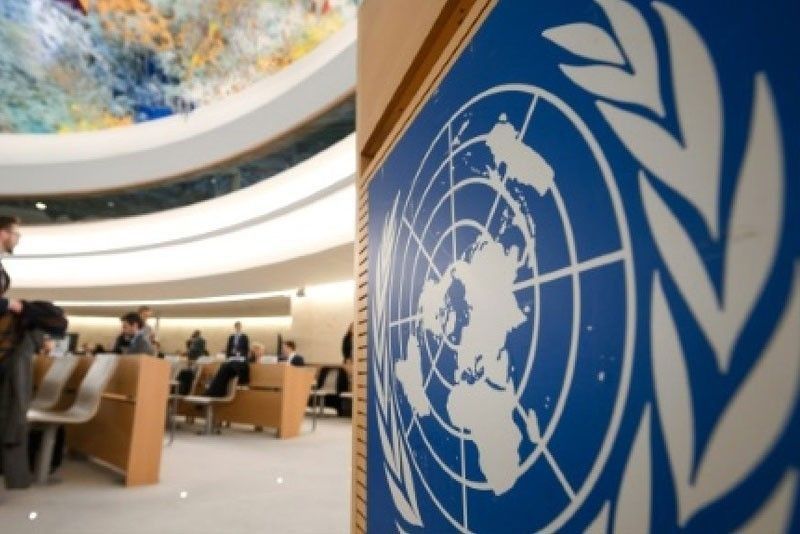UN: Obstacles in protecting persons from enforced disappearance remain

MANILA, Philippines — A United Nations declaration on protecting persons from enforced disappearance continues to face obstacles, mostly concerning prevention, domestication of international obligations and search for disappeared persons and accountability.
This is according to a study by the UN Human Rights Office, which marked the 30th anniversary of the Declaration on the Protection of All Persons from Enforced Disappearance on Dec. 18. The UN Working Group on Enforced or Involuntary Disappearances said the declaration remains a fundamental legal instrument.
The Declaration is a body of principles for all states that is designed to prohibit enforced disappearances, prevent their commission and help victims of such acts and their families to unveil the truth, obtain justice and seek fair, prompt and adequate reparation.
“Today the Declaration largely reflects, codifies and consolidates customary international law that is legally binding on all states. The prohibition of enforced disappearance and the corresponding obligation to investigate and punish perpetrators have attained the status of jus cogens, i.e. a principle of international law that cannot be set aside,” the UN Human Rights Office said.
The Declaration has been translated into several languages, in addition to the six UN official ones and included in several countries as dedicated modules in academic curricula, as well as training directed at relevant actors, including law enforcement and medical personnel, lawyers, judges and prosecutors, human rights defenders, journalists and civil society and associations of relatives of disappeared persons.
The working group stands ready to assist states in identifying these obstacles and overcoming them, including through technical assistance, cooperation and advisory services.
IAS separate from PNP
Meanwhile, the Department of Justice has proposed that the Philippine National Police (PNP)’s Internal Affairs Service (IAS), which investigates police wrongdoing, should be placed under direct control of the Department of the Interior and Local Government (DILG) to ensure more effective probes and insulate investigators from political pressure.
Justice Secretary Jesus Crispin Remulla said placing the IAS out of the PNP’s reach gives more efficiency in holding abusive cops accountable, and that he has already mentioned the proposal to President Marcos and Interior Secretary Benhur Abalos.
“The PNP’s internal affairs unit must be removed from the PNP structure and placed in the hands of the secretary of the interior and local government,” Remulla said in a radio interview when asked how to address police abuses in light of the recent sacking of cops allegedly involved in the disappearance of sabungeros.
“All police forces in the world separate their internal affairs units because that’s the only way you can check on the abusers. However, the IAS has to be a very strong unit that has its own budget and is not anymore covered by the PNP chief,” he added.
Aside from this, Remulla said he had proposed giving the DILG more influence in personnel reassignment and promotions.
He also said the IAS should have personnel secretly embedded in every police unit to closely watch the activities of policemen.
Less bloodshed
In Iloilo City, PNP chief General Rodolfo Azurin Jr. described his administration’s campaign against illegal drugs as lesser bloodshed but more arrests and bigger volume of drugs seized.
When asked if the illegal drugs situation in the country is better now than it was last year, Azurin said he couldn’t make a comparison “but we’re trying our best that it should be better.”
Azurin spoke Wednesday during the Lakad Laban sa Droga fun walk at the Iloilo River Esplanade.
In his first 89 days as PNP chief, Azurin said they were able to confiscate around P9 billion worth of illegal drugs.
As of early December, it reached almost P10 billion.
“We made more arrests with lesser killing,” he said, emphasizing the police have leveled up from the previous campaign. – Neil Jayson Servallos, Jennifer Rendon
- Latest
- Trending






























